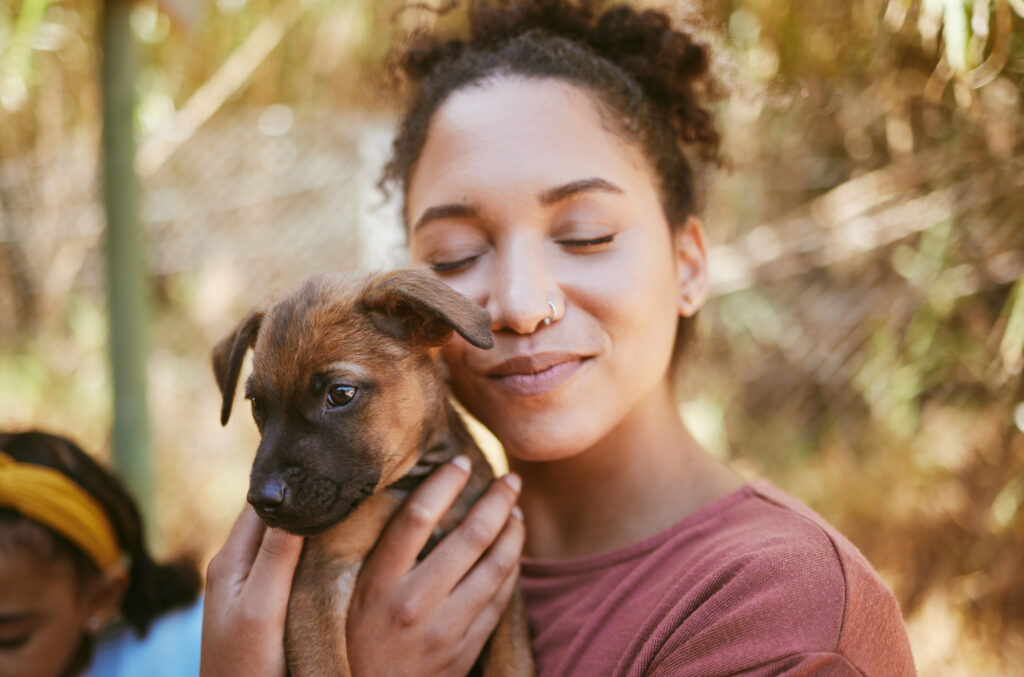Becoming a dog foster parent is a rewarding and impactful way to make a difference in the lives of animals in need. As a foster parent, you provide a temporary home and much-needed love and care for dogs who have been rescued from difficult situations. In this blog, we will explore the responsibilities that come with being a dog foster parent and the incredible impact it can have on both the foster parent and the dogs themselves.
Your Responsibilities as a Dog Foster Parent

When you become a dog foster parent there are a few core responsibilities that you take on. Some of those core duties include,
- Bringing your foster dog to all of their necessary vet appointments. This can include vaccinations, health issues, or even spaying and neutering.
- Paying attention to the different personality and behavioral traits the dog has and communicating these traits to the shelter workers or possible adopters.
- Bringing the dog to and from various adoption events. These events may be coordinated by the shelter or in partnership with a business like PetSmart
- Helping to match them with the right family for adoption
- Starting to teach them them basic training and socialization
One of the most important responsibilities that you have as a dog foster parent is to teach them standard behaviors and socialization.
Training as a Dog Foster Parent

When it comes to fostering dogs, one key aspect that greatly influences their chances of finding a forever home is their level of training. The more well-trained a foster dog is, the more likely they are to be adopted. Here are a few areas of training you should work on with your pup as a dog foster parent!
Basic Training
Basic training is an essential aspect of being a dog foster parent. It plays a crucial role in shaping a dog’s behavior and increasing their chances of finding a permanent home. Through basic training, you are able to teach the dog fundamental commands such as sit, stay, come, and down. These commands help establish a foundation of discipline and obedience, making the dog more manageable and easier to handle. By consistently practicing these commands with positive reinforcement, you can help the foster dog develop good manners and become a well-behaved companion.
In addition to teaching basic commands, basic training also includes other important aspects such as leash walking and crate training. Leash walking is essential for ensuring the dog’s safety and control during walks. By teaching the dog to walk calmly on a leash without pulling or lunging, you are not only making the walks more enjoyable but also showing potential adopters that the dog is well-behaved and easy to handle.
Crate training is another valuable skill to teach a foster dog. A crate can provide a safe and comfortable space for the dog, especially when they are left alone or during transportation. By gradually introducing the dog to the crate and making it a positive and rewarding experience, you can help them become familiar and comfortable with it.
Potty Training
Potty training is an essential aspect of being a dog foster parent. It involves teaching the foster dog to eliminate waste in appropriate areas, such as designated outdoor spaces or puppy pads. Consistency, patience, and positive reinforcement are key to successful potty training. By establishing a routine and taking the dog outside at regular intervals, you can help them develop good bathroom habits. Accidents may happen during the training process, but it’s important to avoid punishment and instead focus on reinforcing desired behaviors. With time and proper guidance, the foster dog will learn to potty in the appropriate locations, making them more adoptable and ensuring a clean and comfortable environment for both the dog and their future forever family.
Running Away
Shelter dogs, due to their innate curiosity and need for mental stimulation, often display a strong desire to explore and break free from the confines of their sheltered environments. This natural inclination, while understandable, can pose significant risks to their well-being, particularly if they reside in a home situated near busy roads or other potential hazards. Therefore, it is crucial to implement measures that actively deter and discourage these dogs from bolting and venturing into potentially dangerous situations, ultimately safeguarding their overall safety and security.
Jumping Up
Teaching your foster dog not to jump up is an important aspect of their training and socialization. Jumping up may seem harmless, but it can become a problem behavior, especially if the dog is large or excitable. Not only can jumping up be disruptive and annoying to people, but it can also be dangerous, particularly for children or elderly individuals who may be unsteady on their feet. By teaching your foster dog not to jump up, you are instilling good manners and respectful behavior. This can make them more desirable to potential adopters, as well as create a safer and more pleasant environment for everyone involved. Consistency and positive reinforcement are key in teaching your dog alternative behaviors, such as sitting or offering a paw instead of jumping. With patience and practice, you can help your foster dog learn appropriate greetings and become a well-behaved companion.
Socialization
Socialization is a vital aspect of being a dog foster parent. It involves exposing the foster dog to various people, animals, and environments in a positive and controlled manner. Through socialization, the dog learns how to interact appropriately with others and develops confidence in different situations. This is especially important for dogs who have had limited socialization experiences in their past. By gradually introducing the foster dog to different stimuli, such as different sounds, sights, and smells, you can help them become more adaptable and less fearful. Socialization not only improves the dog’s overall well-being but also increases their chances of finding a forever home. A well-socialized dog is more likely to be well-behaved, comfortable around strangers, and able to handle new experiences with ease, making them more appealing to potential adopters.
Being a Dog Foster Parent
Being a dog foster parent is an incredibly rewarding experience that allows you to make a positive impact on the lives of animals in need. By providing a temporary home, love, and care, you are giving dogs a second chance at finding their forever homes. Throughout this blog, we have explored the responsibilities of a dog foster parent, including the importance of training, socialization, and potty training. Remember, as a dog foster parent, you play a crucial role in preparing these dogs for their forever families. Your dedication and efforts make a significant difference in helping them become well-behaved, happy, and adoptable companions. So if you have the time, love, and commitment to spare, consider becoming a dog foster parent and experience the joy of transforming the lives of these precious animals, one dog at a time.
